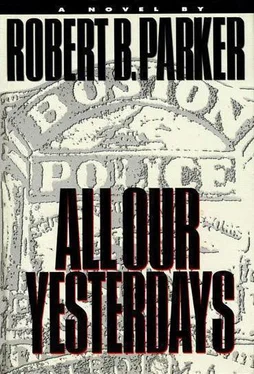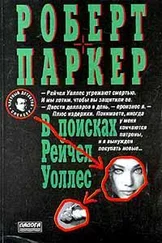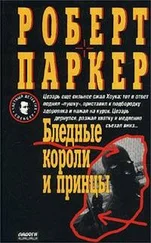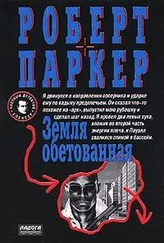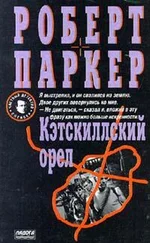The first thing Conn saw when he came slowly up out of the either was a slim blond woman with big eyes, and pale smooth skin. The blond hair was pulled back tight into a twist. He didn’t know her, but he knew she was more than just some Cumann na mBan girl set to mind him after surgery. She wore a very fine wool dress, he could see that, and an expensive diamond clip at her throat.
She said, “I think he’s waking up,” to someone he couldn’t see.
“You’re American,” he said, “or Canadian.”
“He’s trying to talk,” she said.
“He’s still drunk from the ether,” another woman said. The other woman was Irish.
“Are you American?” Conn said.
“Does he think he’s saying something?” she said.
“Yes,” the Irishwoman said. “It probably makes sense to him.”
“How long before it will make sense to me?”
“It’ll be a half hour anyway ’fore he’s coherent,” the Irishwoman said. “As for making sense, most men never do.”
She smiled. Her mouth was wide, and her teeth were very even. Her eyes were wide apart. She dipped a towel in cold water and wrung it out, and wiped his face. He put his hand up toward hers, and missed widely and then forgot what he had put it up for. She laughed and took his hand and put it carefully back on top of the blanket. When she bent forward he could smell her perfume.
“Do you know how he was shot?” she said.
“Shot by a bloody peeler, probably, miss. They shoot our boys as if they were stray rats.”
“Will he be safe here?”
“Dublin’s not a safe place, miss, for Irish lads that won’t crap under to the peelers.”
“But they don’t know he’s here.”
“Not for now they don’t. We’ll move him soon.”
He studied the curve of her breast as she leaned over and put the cool cloth on his forehead again. The room was quiet. The canted rectangle of sunlight that came through the high, narrow windows moved infinitely into the corner of the room and became more angular.
“When they do, will you visit me?” he said.
“When they do?” she said. “When they do what?”
“When they move me?”
“Of course I will. How do you feel?”
He smiled and closed his eyes and felt the coolness of the cloth and smelled her perfume. She changed the cloth again.
“Fine,” he said.
She laughed.
“Do you know how long ago I asked you that?”
“A bit laggard, am I? Coming out?”
“A bit.”
“You wouldn’t be able to put your hands on a dram of whiskey, would you?”
“You’ve been shot,” she said. “I don’t think you should be drinking whiskey.”
“What better time?” he said.
She shook her head.
“What’s your name?”
“Conn Sheridan,” he said. “What’s yours?”
“Hadley. Are you a Volunteer?”
He smiled.
“Brotherhood?”
He held the smile.
“I guess I shouldn’t ask,” she said.
“These are times for secrets, Hadley.”
“I know. Well, I’m for a free and independent Ireland. I want you to know that.”
He was beginning to feel the pain of his wound. It wasn’t awful, just a low, persistent jabbing sensation. Whiskey would help it.
“It’s a fine thing to be for,” he said. “You’re not Irish.”
“No. I’m American. Boston, Massachusetts. But I’m for the cause and I volunteer every day at the hospitals.”
“Did you mean what you said?”
“About being for Ireland?”
“No, about going with me when they move me.”
“I’ll certainly come and visit you.”
“Maybe we can have some secrets of our own,” Conn said, and smiled at her. He had curly black hair, and the kind of smooth Irish skin that would have shown a high color if he were well.
“I am a married woman, Conn, Mrs. Thomas Winslow.”
His smile widened.
“I’ll not hold that against you, Hadley.”
The wind out of the northeast pelted the wet snow against Grace’s window. Motionless at her end of the couch, Grace waited.
“When I was in Dublin,” I said, “I walked along the Liffey and thought about Joyce. You ever read Finnegans Wake ?”
“Not all the way through.”
“Christ, Joyce probably didn’t read it all the way through. I was thinking about the way it starts, ‘rivverrun,’ no capital letters or anything, like in mid-sentence, and then at the end, you know the ending?”
Grace shook her head.
“‘A way a lone a last a loved a long the,’” I said. “No period.”
“Is this how we do it?” Grace said. “You make obscure literary references and I try to figure them out?”
“I never understood the damn book, but I always liked the circular trick, the way the end is the beginning. It’s like us, it’s all connected backwards and forwards, past and present, ‘Along the rivverrun, past Eve and Adam’s.’”
“You may have spent too much time reading, Chris.”
“Yeah, I know, you’re very concrete. But I’m not. I see things and I think of other things. I’m very — what? — associative, emblematic. You look out the window and see a stormy night. I look out and think, Blow, winds, and crack your cheeks . It’s one of the ways we’re different. But it’s not a way that should keep us apart.”
“It’s not what keeps us apart, Chris.”
I stood and walked to the window and looked out at the inappropriate lightning flashes in the anachronistic blizzard.
“It wasn’t so much different then,” I said. “The rifles were mostly bolt action instead of clip fed, and they still had cavalry units, but there were automatic pistols, and Thompson submachine guns. Stuff like that. I’ve seen some of the weapons in a museum in Dublin. The Webley .45 is a big, ugly-looking brute of a thing, but it’s not much different than any revolver that caliber you’d see today.”
I could see Grace reflected in the dark window. She radiated patience. He’ll get to it if I just remain calm . Easy for her to say. I didn’t even know what it quite was.
“I’m sorry. I guess I ramble.”
She smiled.
“A long way past Eve and Adam’s,” she said. “But that’s all right. We’ll get there. It’s about the rest of our lives; it’s okay if it takes time.”
I came back and sat down on the couch again, carefully at my end. I felt as if everything needed to be done carefully, as if it could all too easily spill if we weren’t careful, and ruin everything.
“It’s probably hard for us, late twentieth century, post-Vietnam, to have any real sense of the kind of passion the Anglo-Irish war was fought with. You can still see some of it in Northern Ireland, I guess, but mostly that’s sunk into some kind of ingrown religious economic war that has long since started to feed on itself. For Conn Sheridan, a year and a half after the end of the World War, fighting for freedom, everything must have been heightened, enlarged, elongated by the times. Free Ireland, throw off the yoke of tyranny, rid our land after — what? — ten centuries or so of what he must have thought of as foreign oppression. Boys could go through the blood rituals of manhood and never leave the neighborhood. No pushing up poppies in Flanders field to prove yourself. You could do it in Dublin, or Cork, or Kerry. It was certainly awful in many of its moments, but it must have been fun as hell too.”
“You sound wistful,” Grace said.
“I am wistful. I’ve spent my life not doing anything.”
“That’s a little harsh,” Grace said.
I shook my head.
“Always read about it, always studied it, always observed it, even taught it. Never fucking did it.”
Читать дальше
